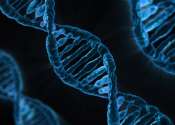Finding new tools for leukemia treatment
A new study published now in Nature Communications, led by João T. Barata from Instituto de Medicina Molecular João Lobo Antunes (iMM, Portugal), and J. Andrés Yunes from Centro Infantil Boldrini (Brazil), shows that changes ...
Dec 14, 2021
0
21







